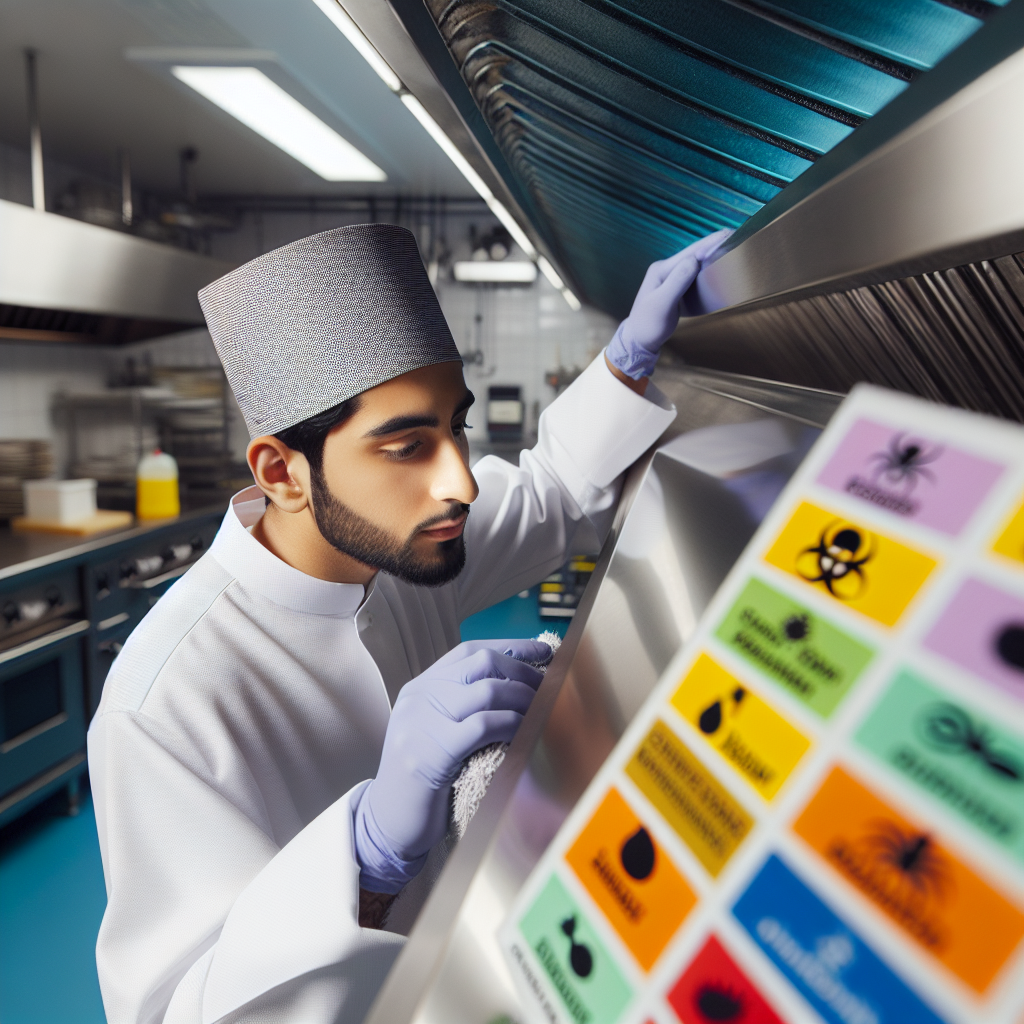Creating a Safe Culinary Space: The Role of Hood Cleaning in Food Allergy Prevention
In the bustling environment of commercial kitchens, safety protocols often center around the prevention of fires and bacteria control. However, an area gaining increasing attention among chefs and restaurateurs is food allergy awareness. For establishments committed to safeguarding their patrons, effective hood cleaning is a vital aspect to consider. Not only does it help in maintaining the general hygiene of the kitchen, but it also plays a pivotal role in preventing cross-contamination, thereby ensuring a safe dining experience for individuals with food allergies.
Understanding Food Allergies: A Hidden Culinary Challenge
Food allergies are a significant concern, with millions of people around the world affected by them. Common allergens include peanuts, tree nuts, milk, eggs, wheat, soy, fish, and shellfish. These allergens can sometimes lead to severe and potentially life-threatening reactions. For individuals with allergies, even trace amounts of allergens can prompt an immune response, making cross-contamination a critical issue in any commercial kitchen environment.
Restaurants need to be vigilant about how allergens move through the kitchen, ensuring surfaces and equipment are thoroughly cleaned. This vigilance extends beyond just countertops and utensils—it includes less obvious aspects of kitchen maintenance, such as commercial kitchen hood cleaning. Clean air flow systems not only improve air quality but also contribute significantly to minimizing the risk of allergen cross-contact.
The Link Between Hood Cleaning and Allergen Control
Hoods and exhaust systems play a critical role in maintaining healthy air quality by venting fumes, smoke, and airborne particles out of the kitchen. However, if these systems are not regularly maintained through professional exhaust hood cleaning, they can accumulate grease, grime, and particles carrying food allergens. These contaminants can then recirculate back into the kitchen air, increasing the risk of allergen contact.
Effective and regular restaurant hood cleaning can significantly reduce this risk. By ensuring that your hoods are free from food residues and grease, you help prevent the spread of allergens that can become inadvertently airborne. The cleanliness of these systems prevents residue buildup that could otherwise contaminate cooking equipment and surfaces with allergenic particles.
The Process of Professional Hood Cleaning
For restaurants, investing in professional Nashville Hood Cleaning Pros services can ensure the comprehensive removal of buildup within exhaust systems. Professional cleaners employ specialized equipment and techniques to dismantle parts of the hood and piping, cleaning each component thoroughly.
- Initial Inspection: Technicians start with a thorough inspection to identify buildup and potential problem areas that need more attention.
- Scraping and Degreasing: The interior surfaces of hoods, ducts, and fans are scraped to remove hardened grease, followed by chemical degreasing to eradicate grease traces.
- Pressure Washing: High-pressure steam or hot water effectively removes remaining residues, ensuring all potential allergens are washed away.
- Final Check: A concluding inspection ensures all components of the system are meticulously cleaned, preventing future cross-contamination issues.
The Broader Benefits of Commercial Kitchen Hood Cleaning
While tackling allergen contamination is a significant concern, there are additional advantages to regular exhaust system maintenance:
- Fire Prevention: Grease and oil accumulation in hoods are common fire hazards. Regular cleaning significantly reduces the risk of fires.
- Improved Air Quality: Cleaner air free from smoke and grease particles contributes to a healthier environment for both kitchen staff and diners.
- Enhanced Efficiency: Well-maintained systems operate more efficiently, reducing energy costs associated with air filtration and ventilation.
- Regulatory Compliance: Many local health codes and insurance policies require regular hood cleaning to prevent hazards, making it a critical compliance issue.
Prioritizing Safety Through Professional Services in Nashville
For restaurants in Nashville, engaging with expert services like Nashville Hood Cleaning Pros ensures that all aspects of kitchen safety and allergen prevention are covered thoroughly. These services are tailored to meet the unique needs of each kitchen environment, ensuring that all potential risks are addressed with professionalism and precision.
In conclusion, the role of hood cleaning extends far beyond basic hygiene. By maintaining systems free of buildups and allergens, restaurants fulfill a crucial part of their responsibility towards patrons, especially those with food allergies. For establishments looking to improve their safety standards, seeking professional hood cleaning services not only elevates their operational efficiencies but also provides peace of mind that all guests are dining in a safe and allergen-controlled environment. With Nashville Hood Cleaning Pros, kitchens can ensure they meet these vital health and safety standards.


